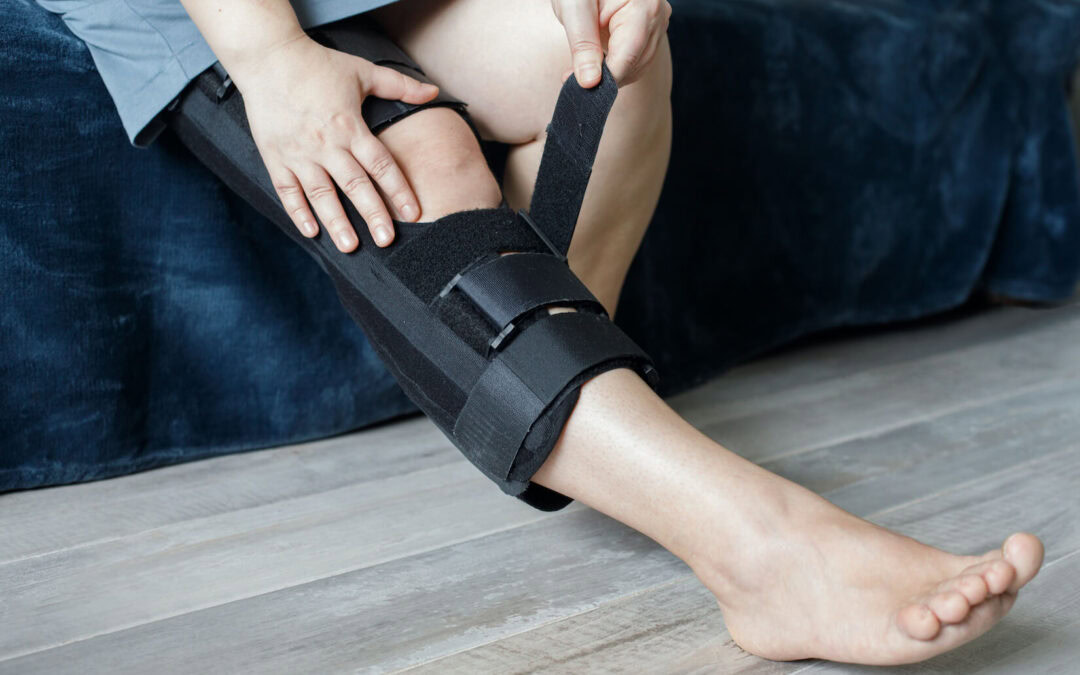Active video games, sometimes referred to as “exergames,” are video games that require players to engage in physical activity as part of gameplay. Examples include games that use motion-sensing technology, balance boards, or even virtual reality setups. When used judiciously, these games can be beneficial for the recovery of physical injuries, especially when incorporated into a physical therapy regimen.
Benefits of Active Video Games
Active video games are one way to shake up your physical rehab journey. Integrating active video games into therapy can make the exercises feel more like play, which can motivate you to participate more fully and consistently.
Speed up Recovery
While active video games can’t replace physical therapy, they can be used in tandem to speed up your recovery. If, say, you have a few days in between physical therapy sessions, you can play active video games to make progress. Allowing yourself to have fun as you recover will make you more eager to stick to your recovery plan, with the flexibility of your therapy keeping you engaged for longer.
Track Your Progress
Physical therapy can take time, and when you don’t progress quickly enough, you may begin to doubt its effectiveness. It’s natural to feel that way. However, if you want to see results, active video games provide a great way to measure your recovery. Many active video games provide real-time feedback on the player’s performance. This can help you understand how well you’re doing, see your progress over time, and adjust your movements accordingly.
In timed-based games, you can easily see how well you’re progressing by simply comparing your previous times to your current times. As you progress, many games may allow you to increase your difficulty level so that you can continue to improve, with the increased challenge pushing you a bit harder.
In the Nintendo Switch game Ring Fit Adventure, for example, you can customize the game’s difficulty by adjusting the running-in-place setting, which is there for accessibility. If you’re recovering from a knee injury or leg injury, you can turn off running-in-place to make it an upper-body workout. You can go back to the original settings as your injury becomes more stable.
Reduce Risk of Re-injury
As long as you take it easy and don’t overexert yourself by making slow, steady progress, active video games are a relatively safe way to aid your recovery. Going outside for your exercise, while a great idea in practice, may increase your risk of re-injury.
Despite these benefits, it’s important to note that active video games should be used as a supplement to, not a replacement for, traditional physical therapy. Active video games may not be suitable for every patient or injury. It’s a good idea to ask your physical therapist if implementing active video games into your training regimen is a good idea. They may be able to instruct you on how many hours a week you should play active video games, or at what intensity you should exert yourself.
Active Video Games You Can Try
Active video games are still a relatively new type of interactive media. The debut of the Nintendo Wii kicked off the active video game revolution not that long ago, and while active video games remain a niche within the gaming industry, there are still many well-made active video games to choose from. Below are a few examples.
Wii Fit (Nintendo Wii): This is perhaps one of the most well-known active video games used in rehabilitation settings. The game offers a range of activities, from balance games to strength training and aerobics. The Balance Board accessory can detect shifts in the user’s weight, making it useful for improving balance and coordination.
Wii Sports (Nintendo Wii): Though not designed with fitness in mind, Wii Sports remains one of the best active video games ever made. This game includes sports simulations like tennis, baseball, and bowling. These activities can aid in enhancing hand-eye coordination, upper limb strength, and movement.
Just Dance Series (Various Platforms): These games are designed to get players dancing to the beat of popular songs. They’re great for cardiovascular fitness, coordination, and flexibility. The Nintendo Switch version uses the Joy-Con controllers to track hand movements, making it one of the better options.
Ring Fit Adventures (Nintendo Switch): This active video game comes with two peripherals: a leg strap and a large ring. The leg strap simply tracks your movement, but the rubber ring is both a controller and a piece of fitness equipment, as it provides more resistance the more you squeeze it. Within the game, you’ll be asked to run in place, squat, and squeeze the ring to progress. It’s a fun game that can be as challenging as you wish it to be.
VR-Based Games: With the advent of virtual reality, several VR games are being explored for rehabilitation purposes. Games on platforms like the Meta Quest 2 and PlayStation VR 2 can offer immersive experiences that motivate patients and allow for more natural movement tracking. Beat Saber, a rhythm-based game, is a great game to get up and moving, but there are many more, such as Pistol Whip, Fit XR, and Superhot.
When considering any of these games for rehabilitation, it’s crucial to consult with a medical or rehabilitation professional. They can guide the patient in selecting appropriate games and ensuring that exercises are performed safely and effectively.
Spice Up Your Recovery with Active Video Games
Recovering from a serious injury takes time, patience, and a lot of physical therapy. That said, the journey doesn’t have to be boring. With the permission of your physical therapist, you may want to introduce active video games into your rehabilitation plan. Having a flexible recovery plan will allow you to have more fun, which can make the process less of a chore. As a result, you may feel more motivated to recover. If used correctly, playing active video games can complement your physical therapy sessions and result in a faster recovery time.
Total Physical Therapy is Denver’s premier physical therapy clinic for those suffering from injuries caused by car accidents, workplace accidents, and playing sports. In addition to providing physical therapy, our services include Kinesio taping, dry needling, and rehab and recovery treatments. If you’re ready to get back to normal, schedule an appointment with one of our Denver physical therapists.




